Get Roof Vents Installation in Atlanta, GA
Roof vent installation services help Atlanta-area property owners improve attic ventilation, prevent moisture buildup, reduce heat, and ensure proper airflow in various roofing projects.
Proper roof ventilation is essential for maintaining the integrity and efficiency of a property in Atlanta, GA. Effective roof vents help regulate indoor temperatures, prevent moisture buildup, and reduce the risk of damage caused by excess heat or humidity. Property owners exploring roof vent installation often consider the benefits of improved airflow and energy savings, making it a practical step for long-term property management. By comparing local contractors who specialize in roof vent services, homeowners and business owners can find the right solutions tailored to their specific needs.
If planning a roof vent installation, it’s important to evaluate the options available within the local market. Many service providers in Atlanta, GA, offer a range of solutions designed to enhance roof performance and protect the structure. Reviewing the credentials and experience of local contractors can help ensure the project is handled professionally and efficiently. Continuing to explore your options will support making an informed decision that aligns with the unique requirements of your property.
- Attic Ventilation - homeowners in Atlanta neighborhoods like Midtown may need roof vents to improve airflow and reduce humidity.
- Roof Vents Replacement - property owners with aging or damaged vents in areas such as Decatur might require upgrades to prevent leaks.
- Attic Exhaust Vent Installation - residents in suburban areas like Smyrna could benefit from additional vents to enhance attic temperature regulation.
- Custom Roof Vent Solutions - those constructing new homes or remodeling in areas like Buckhead may seek tailored vent systems for optimal performance.
- Roof Vent Repairs - homeowners experiencing drafts or persistent moisture issues in neighborhoods like Roswell may need local contractors to fix existing vents.
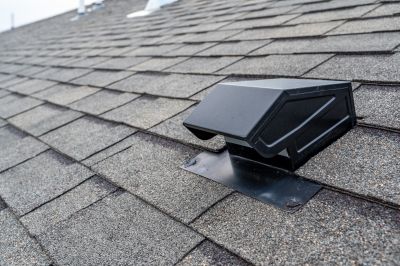
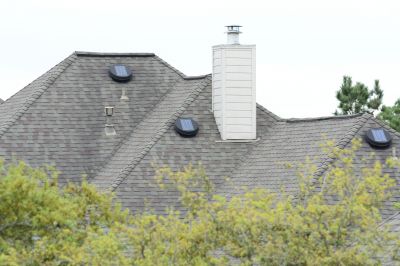
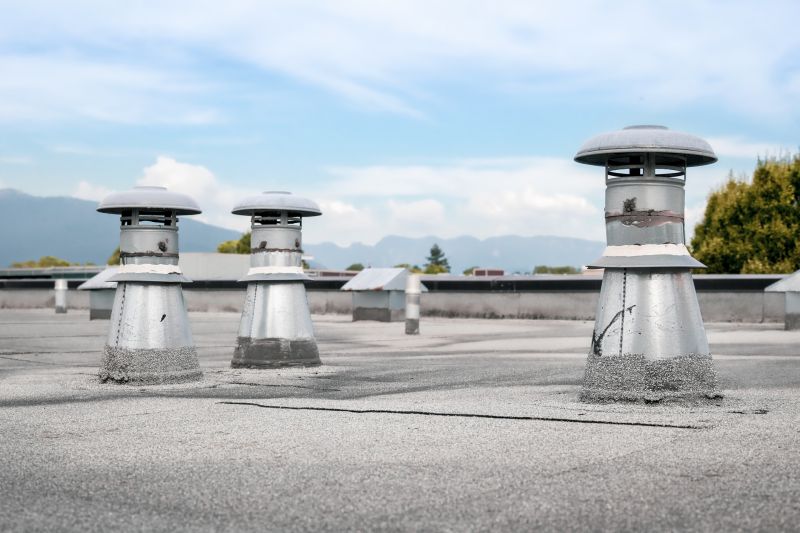
Roof vent installation services involve adding or upgrading ventilation systems on a property's roof to improve airflow and temperature regulation inside the building. These services typically include assessing the current roof setup, selecting appropriate vent types, and properly installing them to ensure optimal performance. Properly installed roof vents help prevent issues like excess heat buildup, moisture accumulation, and condensation, which can lead to structural damage or mold growth over time. Local contractors specializing in roof vent installation can customize solutions based on the specific needs of a property, whether it’s a residential home, multi-family building, or commercial property.
One of the main problems roof vent installation helps address is poor attic ventilation. Without sufficient airflow, heat can become trapped in the attic space during warmer months, increasing cooling costs and causing roof materials to wear prematurely. Conversely, inadequate ventilation can also lead to moisture buildup, especially in humid climates, which may result in wood rot, mold, or mildew. Installing the right type of vents-such as ridge vents, soffit vents, or gable vents-can significantly improve air circulation, helping to maintain a balanced indoor environment and extend the lifespan of the roof.
This service is commonly used on a variety of property types, including single-family homes, apartment complexes, and commercial buildings. Homes in areas with hot summers or high humidity often benefit from upgraded roof vents to enhance comfort and energy efficiency. Larger properties with complex roof designs might require more specialized venting solutions to ensure consistent airflow across all sections. Property owners who notice signs of poor ventilation, such as excessive attic heat, musty odors, or visible mold, are often advised to consider professional roof vent installation as a practical step toward resolving these issues.
Homeowners and property managers should consider roof vent installation when experiencing signs of inadequate attic airflow or when planning roof renovations. Proper ventilation not only helps prevent costly damage caused by moisture and heat but also contributes to a more comfortable indoor environment. Local contractors experienced in roof vent services can evaluate existing ventilation systems and recommend the most effective options tailored to the specific property. Connecting with knowledgeable service providers can ensure that the installation is performed correctly, providing long-term benefits for the health and durability of the building.
The overview below groups typical Roof Vents Installation projects into broad ranges so you can see how smaller, mid-sized, and larger jobs often compare in Atlanta, GA.
In many markets, a large share of routine jobs stays in the lower and middle ranges, while only a smaller percentage of projects moves into the highest bands when the work is more complex or site conditions are harder than average.
Smaller Repairs - The typical cost for minor roof vent repairs or replacements ranges from $250 to $600. Most routine jobs fall within this range, depending on the vent type and accessibility. Fewer projects reach the higher end of this spectrum unless additional work is needed.
Standard Vent Installations - Installing new roof vents or replacing existing ones usually costs between $600 and $1,200. Many local contractors perform these projects within this band, with larger or more complex installations potentially reaching $1,500 or more.
Full Roof Vent System Replacement - Replacing an entire roof vent system can cost from $1,500 to $3,500, depending on the size and complexity of the roof. Most projects in this category are priced in the middle of this range, with some larger or custom setups exceeding $4,000.
Complex or Custom Projects - Larger, more intricate roof vent installations or custom designs can exceed $5,000. These projects are less common and typically involve specialized work or unique roof configurations requiring additional labor and materials.
Actual totals will depend on details like access to the work area, the scope of the project, and the materials selected, so use these as general starting points rather than exact figures.
Attic Ventilation Projects - These projects involve installing vents to improve airflow, requiring similar planning and skill as roof vent installation.
Roof Repair and Replacement - Repairing or replacing roofing materials often includes installing or adjusting roof vents to ensure proper ventilation.
Skylight Installation - Installing skylights involves working on the roof structure and may require venting adjustments, sharing tools and planning with roof vent services.
Chimney and Exhaust Vent Installation - Setting up exhaust systems or chimneys involves penetrating the roof and coordinating vent placement, similar to roof vent installation.
Gutter and Drainage System Setup - Installing gutters and drainage systems on roofs involves working at heights and planning for proper roof airflow, aligning with vent installation skills.
Roof Insulation Projects - Upgrading or installing insulation often goes hand-in-hand with ventilation improvements, requiring similar knowledge of roof structures and planning.
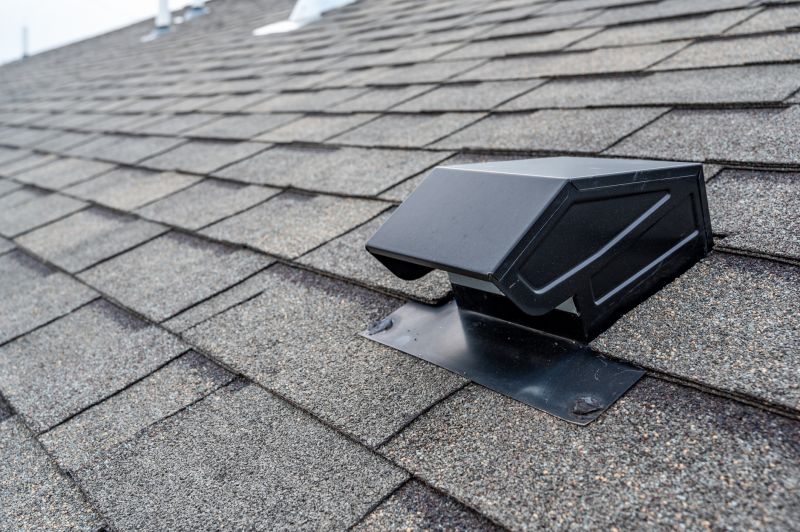
When comparing service providers for roof vent installation, it’s important to consider their experience with similar projects. Homeowners should look for local contractors who have a proven track record of handling roof vent installations in environments comparable to their own. An experienced professional will understand the nuances of different roof types and ventilation needs, helping to ensure the job is done correctly and efficiently. Asking for details about past work can provide insight into their familiarity with projects similar to yours, making it easier to find a contractor who can meet your specific requirements.
Clear, written expectations are essential when evaluating potential service providers. Homeowners should seek out contractors who can provide detailed descriptions of the scope of work, materials to be used, and the steps involved in the installation process. Having this information in writing helps prevent misunderstandings and ensures everyone is on the same page. It’s also useful to inquire about warranties or guarantees offered, as these can serve as indicators of the contractor’s confidence in their work and commitment to quality.
Reputable references and effective communication are key factors in choosing a reliable local contractor. Homeowners are encouraged to ask for references from previous clients who had similar roof vent projects completed. Speaking with past customers can reveal insights into the contractor’s professionalism, reliability, and the overall quality of their work. Additionally, good communication throughout the process-prompt responses, clarity in explanations, and a willingness to answer questions-can make the experience smoother and more predictable. Remember, the goal is to connect with service providers who are transparent, experienced, and easy to work with, ensuring the project aligns with expectations and standards.
Property owners in Atlanta, GA use Roof Vents Installation services for practical projects around their homes and businesses. This guide focuses on everyday jobs and straightforward project options.
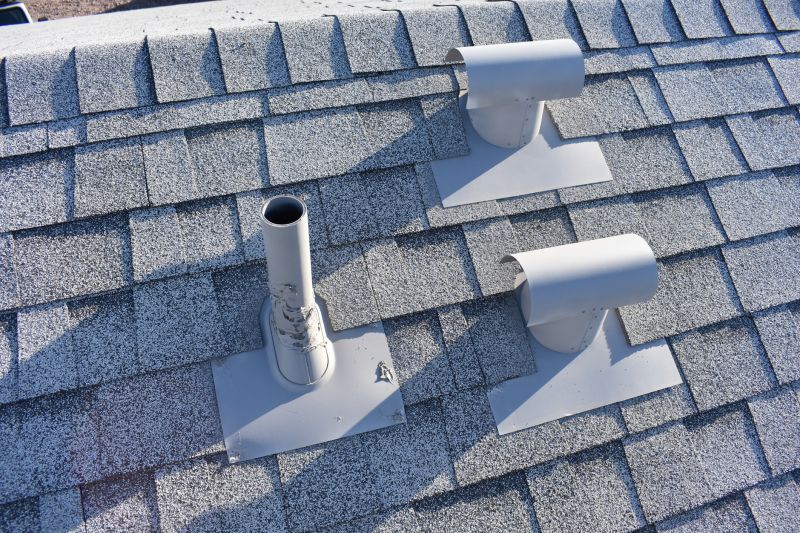
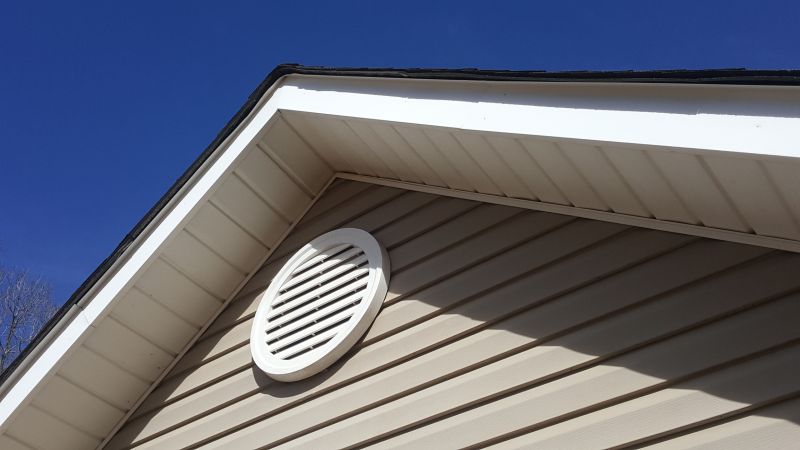
Roof vent installation is a common project for property owners in Atlanta, GA who want to improve their home's ventilation and prevent issues like excess heat buildup or moisture accumulation. Homeowners often seek these services when upgrading an older roof or making improvements to ensure proper airflow, especially during hot Georgia summers. Additionally, those experiencing indoor humidity problems or noticing mold growth may look for local contractors who can install or replace roof vents to help maintain a healthier living environment.
Many property owners in Atlanta consider roof vent installation when preparing their homes for seasonal changes or to address specific comfort concerns. Whether installing new vents during a roof replacement or upgrading existing ones to enhance energy efficiency, local service providers can handle a variety of project situations. These professionals can help ensure that homes are properly ventilated, reducing strain on cooling systems and promoting better air circulation throughout the year.
What are roof vents and why are they important? Roof vents help regulate airflow in the attic, preventing moisture buildup and reducing heat accumulation, which can protect the roof’s integrity and improve energy efficiency.
How do I know if my roof needs new vents installed? Signs include excessive attic heat, moisture problems, or visible damage around existing vents, indicating that a professional assessment may be beneficial.
What types of roof vents are available for installation? Common options include ridge vents, soffit vents, gable vents, and turbine vents, each suited to different roof styles and ventilation needs.
Can roof vent installation be combined with other roofing services? Yes, installation can often be coordinated with roof repairs or replacements to ensure proper ventilation and overall roof performance.
How do local contractors ensure proper roof vent installation? Experienced service providers follow best practices for placement, sealing, and integration with roofing materials to ensure effective ventilation and durability.
Improve attic ventilation - Installing roof vents helps property owners promote better airflow, reducing heat buildup in attics during hot Atlanta summers.
Prevent moisture buildup - Proper roof vent installation can help avoid excess humidity, which may lead to mold or wood rot in the roof structure.
Enhance energy efficiency - By improving ventilation, property owners can reduce cooling costs and create a more comfortable indoor environment.
Maintain roof longevity - Local contractors can install roof vents that help protect roofing materials from damage caused by trapped heat and moisture.

If you are thinking about Roof Vents Installation for a property in Atlanta, GA, this guide is meant to help you understand the work, the typical project types, and how different options might fit your plans.
When you are ready, you can use the quote form on this page to share a few details about your project. From there, local pros can review the basics and respond with options that match what you have in mind.



